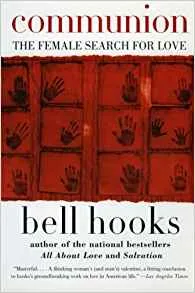
Reading Pathways: Where to Begin With bell hooks Books
This content contains affiliate links. When you buy through these links, we may earn an affiliate commission.
I was introduced to the work of bell hooks like most of us, in college; and like some of us, I instantly fell in love with her writing. Of course, it took me a while to actually read one of bell hooks’s books for class. But her whisperings were there. As an English major, her work on race, gender, and class was critical in my education—especially as we discussed the difficult topics of Civil War–era (and beyond) Black writers. Reading hooks’s writing has become essential in my anti-racist learning. She writes with passion, ferocity, pain at the injustices, but mostly love. Love for her family, for herself; love for her culture, for her color, love for all of the people who don’t deserve her writing, but read anyway so we can see a glimpse of what could be. Her writing is downright brave.
Alright, if you haven’t had the honor of reading Sojourner Truth’s “Ain’t I a Woman” speech, I suggest you stop everything right now and go read it. Truth is addressing a room of suffragettes and activists asking black women to step aside and let their cause be first (before ending slavery—you know). Enter bell hooks, a young college student 100 years later. Much has changed, yet SO much is still the same. Jeez, even 40 years later we still have to argue that Black and marginalized people are human beings and deserve human treatment. This is essential for hooks readers because it’s her foundation stone. This is the work that she has built her life on.
This short and sweet book is often required reading in feminist classes. It’s a primer—in hooks’s classic style, in how feminism can change the lives of all of us for the better. She examines the core issues of feminism and its positive promise to eliminate sexism, sexual exploitation, and oppression.
Here is where we start to deeply understand bell hooks. How she learned how to understand the social structures in her family as a vulnerable little girl who chose to read alone in the corner. She shows us a society that punishes women for anything more than silence—where fathers are estranged from their daughters—where writing becomes air. This book is the foundation of hooks’s creativity. It’s painful, but deeply beautiful.
This is a collection of essays about her feelings on writing through her years of teaching English in universities. She discusses how writing can offer healing, why it’s difficult for Black writers to write memoirs, and her personal experiences with publishing. I am putting this under “memoir” for this reason. Of course there’s the beautiful talk about writing being a political act. How women’s writing must take the form of confession to make it readable. But there’s also essays about how the impact of the success of her writing has had in her life. It’s beautiful and inspiring.
I am the mother of two sons whom I don’t want living a life emotionally stunted by toxic masculinity. hooks talks about the impacts of a patriarchal culture that keeps men from knowing themselves. She talks about how rich emotional lives don’t just have to be for women. How spiritually rewarding it is to be fully in tune with yourself. hooks also addresses the common fears men have when treading into this world, losing their patriarchal power. She shows men that life can be so much more rewarding and beautiful once they embrace themselves.
If “The Will to Change” was a call to men to embrace themselves, this is the call to women to claim own their own heroic journey into love. It is the third in a series starting with “All About Love” and “Salvation: Black People and Love.” Both are highly recommended. However, this book can stand on its own. A lot of people have said that this book has changed their lives. hooks writes with clear and loving language about the role of love for women in a changing society. What that role can look like if we let go of our obstacles and embraced our humanity as women.
“I will not have my life narrowed down. I will not bow down to somebody else’s whim or to someone else’s ignorance.” —bell hooks


 Ain’t I A Woman? Black Women and Feminism
Ain’t I A Woman? Black Women and Feminism Feminism is for Everybody
Feminism is for Everybody Bone Black: Memories of Girlhood
Bone Black: Memories of Girlhood Remembered Rapture: The Writer at Work
Remembered Rapture: The Writer at Work The will to change: Men, masculinity, and love
The will to change: Men, masculinity, and love Communion: The Female Search for Love
Communion: The Female Search for Love



